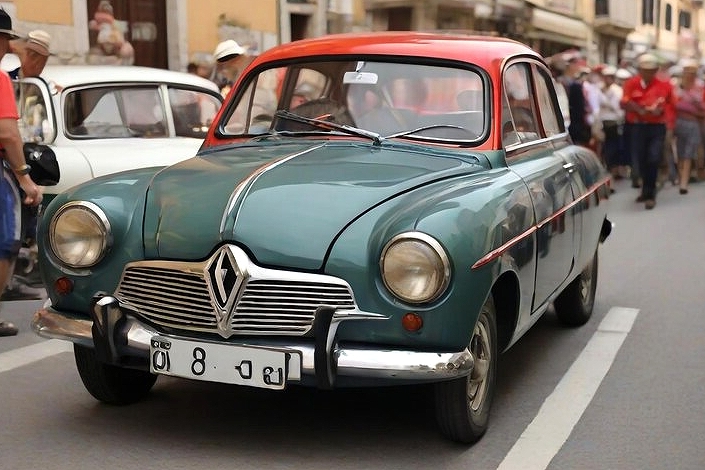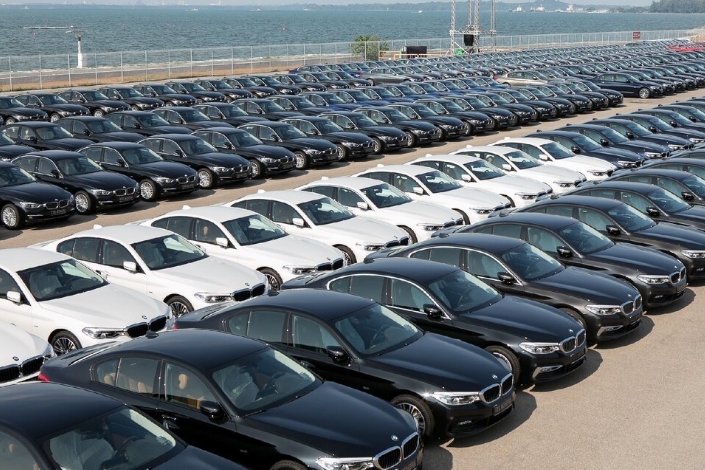
How and when will Europe become a car Cuba?
ZYou know, although I was on “Liberty Island”, far from Russia, only once, I really liked this country and especially the people who live there. Cuba is remembered for many things: truly heavenly beaches, unusual fruits, seafood cuisine, rum, cigars, and what else? It seems to me that it would be correct and appropriate to name a word that is simple for all of us - a car. Yes Yes, Cuba is remembered for cars and in two respects - there are few of them and they are very old, one can safely say without being mistaken - they are rare.
Prophecies of the head of Iveco: in 15-20 years, Europe will become an “automotive Cuba”
Many will agree with me that Cuba is reminiscent of an open-air automobile museum, where respectable and often roaring dinosaurs of the automotive industry ply along the roads with absolutely no traffic jams (there is still some advantage). Extremely high prices due to the ongoing embargo make modern cars and spare parts a real luxury, accessible only to a small category of island citizens.
And so, the well-known company Iveco, represented by its CEO, paints us in black and white a colorful and not unproven apocalyptic picture of the entire European automobile industry and Europe itself as a whole, telling Europe the sad fate of the “Island of Freedom.”
Why Europe could suffer the same fate as Cuba
Let's think about how Old Europe can repeat the sad fate of a distant Caribbean island. Has China or the US really decided to impose terrible sanctions on it? No, of course the matter is completely different.
Probably only a completely information-deaf person does not know about the pathological desire of Europe and especially its individual leaders like Germany to become the first in electrification, clean energy and to find the most “healthy” air in the world.
No one will argue; the goal is truly noble and far-reaching. Of course there are many nuances that separate the noble desire and the harsh realities of life, but when has this stopped any of the real reformers with a fiery heart in their chest?
As a result, today we received ban on the production of new cars with internal combustion engines from 2035 – the first, but serious step on the thorny reform path. According to the approved law, an exception for automobile manufacturing concerns will remain the production of cars running on synthetic fuel.
Everything would be good for the reformers, but unfortunately this absolutely does not solve the problem of existence already released and sold cars with internal combustion engine. As a result, Iveco predicts that millions of similar cars will regularly travel along the autobahns of old Europe for many, many years to come.
What threats does the refusal of internal combustion engines pose for Europeans?
Many people, especially those who are aware of the situation, do not remain silent and openly express their attitude to what is happening, sometimes without hesitation in expression and without fear of offending European officials. For example Gerrit Marx, CEO of Iveco, practically sounds the alarm:
“We risk getting the opposite effect of what was planned: we will become the coolest Cuba with very old cars with internal combustion engines that will be used for many years, since part of the population will clearly not be able to afford to purchase and maintain electric cars. Cars will become a kind of symbol of a new high status for selected people with money.”
At the same time, he described the Euro-7 standard as ineffective and even useless, the introduction of which in Iveco engine will only lead to a significant increase in the price of even the simplest cars.
In its turn Luca de Meo, head of Renault, agreeing with Gerrit, said that European officials are only interested in creating more and more new rules and standards. And this is happening against the background of an absolute lack of a balanced and consistent strategy and tactics in the field of industrial development, which should focus on the needs and capabilities of citizens, as well as workers in the automotive industry of the European continent.
He emphasized that, taking into account auxiliary production and the technological chain, the work of the European automobile industry involves millions of peoplewho, thanks to ill-considered decisions, may soon lose their jobs and guaranteed income.
He also spoke negatively about the Euro 7 standard, which he called an ineffective and expensive standard, which, according to his calculations, will lead to an increase in the price of all cars by at least 3,000 - 4,000 Euros.
Are the statements of the heads of Iveco and Renault a clear exaggeration?
So, is old Europe going to the ungrateful and unpromising Cuban automobile model? It seems that everything is not so sad, because progress does not stand still and technology, including in the automotive industry, is also something that is constantly being improved and improved.
But... how should I say this... Part of such a scenario is not even excluded, as evidenced by the fact that more and more major auto concerns are focusing their investments on spare parts factories for cars and are developing what seems to be a very valuable direction in the future - technologies and automation methods used car repair.




